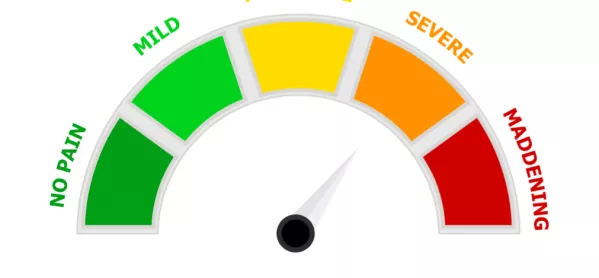- Home
- Why needlessly push teachers’ anxiety up to level 5?
Why needlessly push teachers’ anxiety up to level 5?

I’m not going to be stupid enough to offer my thoughts on the vexed questions of when and how schools should be opened to more pupils. I’m not a teacher, or a scientist, so it is hard to see how I could add anything useful.
But as an education journalist observing this already crowded debate, one fact is glaring out at me in huge, bright, floodlit, Day-Glo capital letters.
If you are going to reopen schools successfully - and at some point they will have to be - then you need to ensure that the people who you are depending on to make it work are onside.
YOU HAVE GOT TO TAKE TEACHERS WITH YOU. And you have got to recognise how frightened they are.
The plan: All primary pupils to be back in school before summer
Safety fears: School reopening plan branded ‘reckless’
Opposition: Teachers give school reopening plans a ‘resounding no’
At the moment, the collective mood of the profession could probably best be described - quite understandably - as ultra-anxious.
Social distancing has come to be seen as the key weapon in combatting the coronavirus epidemic. But teachers are being asked to go back to work in schools without it, and most will also lack that other key safeguard against the virus: PPE.
No physical protection
They are being expected to spend days teaching classes of as many as 15 untested infant pupils, with no physical protection. This is at a time when the Department for Education’s own chief scientific adviser has said there is a “low degree of confidence” that children transmit Covid-19 less than adults.
Other experts are similarly cautious, with one leading epidemiologist warning that the evidence on how safe it is to open up schools to more pupils is currently “fairly uncertain and debatable”.
Teachers and other school staff are effectively being asked to step out into a risky unknown. Of course they are scared.
That doesn’t mean they won’t do it. Teachers are dedicated public servants, with an inbuilt sense of duty and responsibility for their pupils’ education. I suspect that if the government wants schools to open on a certain date then the vast majority of them will do so, however much teaching unions advise against it.
Shambolic school reopening announcement
But what it does mean is that the teachers taking this risk deserve to be treated with honesty, openness and respect by the government that is asking them to do it. And this week’s shambolic, piecemeal school reopening announcement has been anything but.
If you want to give people confidence in your plan, then deliver it comprehensively with supporting documents - so at least they can fully understand what is being proposed. Instead, the government let it dribble out in a way that almost seemed designed to maximise unease.
Boris Johnson made much of his five-tier coronavirus alert system when addressing the nation on Sunday night. But by dropping in his intention for primaries to reopen in June and then providing no details of how this could be achieved for another 24 hours, the prime minister instantly and needlessly pushed teachers’ anxiety levels into the red zone at a critical level 5.
It didn’t help that their leaders appear to have been given very little, if any, warning. Paul Whiteman, general secretary of the NAHT school leaders’ union - representing many of the primary heads who will be responsible for making this plan work safely - insisted that he hadn’t been consulted on the specifics at all.
Frustration over lack of detail
And the frustration expressed by his usually measured counterpart at the Association of School and College Leaders, Geoff Barton, about the lack of detail or advanced consultation on the PM’s speech was also telling.
“To be fair, we do not blame the Department for Education,” he stressed. “We have worked very constructively with them throughout the crisis.”
So, in a story that has repeated itself so many times over the past few decades, it seems that once again it is an intervention from a big-footed No 10 that has upset the work of the DfE. But that is a detail that is unlikely to do much to soothe teachers’ jangled nerves.
The bigger picture is that the ministers have got work to do following this shabby communications debacle if it wants the profession to stop feeling taken for granted. As Mr Barton says: “None of this is helpful in building public confidence over this important issue, and government communication will need to improve in the future.”
Keep reading for just £1 per month
You've reached your limit of free articles this month. Subscribe for £1 per month for three months and get:
- Unlimited access to all Tes magazine content
- Exclusive subscriber-only stories
- Award-winning email newsletters



